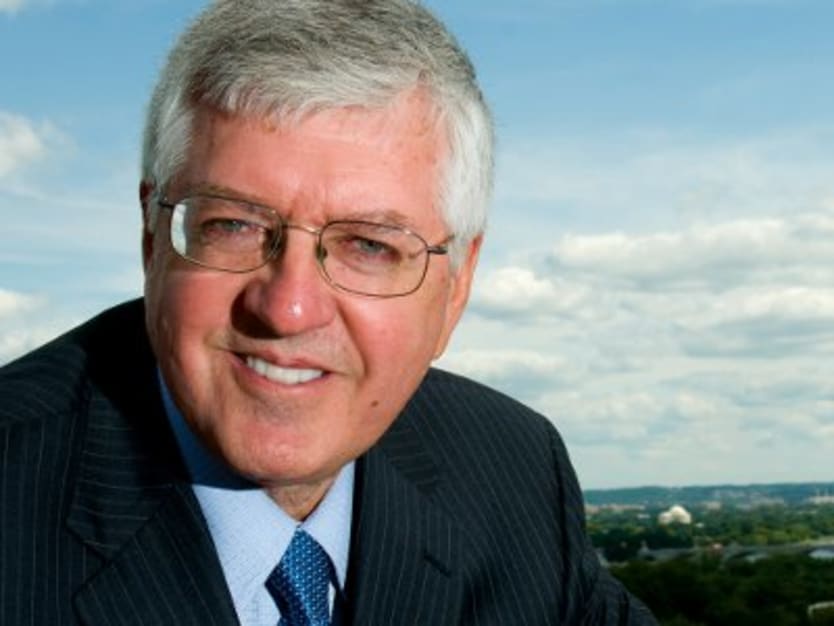
The theme of this year’s World Economic Forum, meeting this week in Davos, Switzerland, is “The Great Transformation: Shaping New Models.” The discussion will focus on innovative concepts and models for a global economy in the midst of a historic rebalancing. Thus, the discussion takes place against a backdrop of unease and a sense that the future could be quite different than the past.
Discussion of this new reality at places like the World Economic Forum is immensely important to the international development community. My view is that the development community has, if not all the answers, important and useful insights into how the beliefs and energies of communities can be focused to enable sustainable development.
Why do I believe we have something unique to offer the conversation? Because through our work around the world, local communities are adopting – and adapting – new models of development that are transforming their lives for the better.
Truly sustainable development projects are implemented with and by communities. They are not massive state-directed projects, nor are they purely private investments geared exclusively toward market outcomes. Rather, effective development projects view economic advancement holistically, as one part of how communities identify, prioritize and address their own needs. In so doing, they borrow best practices from business, nongovernmental organizations and government institutions, and they combine them in innovative ways.
An example of this is International Relief & Development’s Women First project. In Mozambique, which has very high rates of HIV transmission, Women First began from a socio-economic reality: Women’s health is interlinked with economic status. Preventing the transmission of HIV must include economic development that improves women’s status in their households and in their communities, including their access to health care. The skills and attitudes to play fuller roles in family and community life lead to better health and higher earning capacity.
Women First is a partnership between the Women’s Society of the United Methodist Church of Mozambique, World Vision, IRD, the U.S. Agency for International Development, the Canadian International Development Agency, and Unilever.
Following an Avon-type model, the program supplies participants with basic household products — soap, detergent, oil, sugar, pasta, matches and candles — to sell door-to-door. Women receive entrepreneurial training that includes sessions on the in-kind credit model, market dynamics, calculating profit margins and bookkeeping.
Participants attend weekly monitoring sessions to report on sales. During a mandatory 45-minute participatory health session, women are provided basic health information using a “body and soul” approach. Instructions are simple and content is updated regularly based on lessons learned or questions from the women themselves. Topics range from basic health and hygiene to HIV to social issues such as stigma and gender-based violence. Women often facilitate the sessions — a peer education model that ensures discussions are relevant and appropriate.
The sessions are flexible enough to incorporate participants’ priorities, including a small loan program and training on human and legal rights. Non-members and men are encouraged to attend these sessions.
The results have been significant. As income earners, women now have a say in household spending decisions, such as schooling for children. Focus group participants say their status at home and in the community has improved, along with their relationships with their spouses, children and other relatives. Women can travel more freely, as men know they are selling products. With mobility comes exposure to life outside, providing women with new ideas and information to enrich their lives. Women also describe changes in sexual practices, especially the ability to negotiate safe practices with spouses. The legal rights training has raised women’s awareness of their rights to property and fair inheritance, as well as the value of registering marriages to ensure these rights are respected.
Perhaps most important, women say they aspire for their children to receive as much education as possible. While the increased income from running a small business has improved their lives, women wanted even more for their children.
Women First thus offers a picture of transformation through community-based development. The program was designed with a holistic perspective that identified sources of economic and social creativity, partnered donors with the private sector and a development organization to harness these resources, and changed community expectations and relationships in ways that realized immediate and longer-term outcomes.
And by outcomes, we mean much more than increased income, as important as that is. “Women First” strengthens family life and equips participants with the tools and resources they need to become more self-sufficient, improving community life on every level.
As the Davos agenda indicates, a gathering consensus indicates that some economic models must be adapted or give way to newer ones if we are to maintain the momentum of the past 60 years in lifting people out of poverty. Perhaps at least one of these “new” models is not so new. It is a holistic approach that begins with communities, recognizes that real development has multiple dimensions, and integrates best practices from diverse organizations, public and private. While the development sector’s approaches and perspectives are not exhaustive, they are unique. We owe it to policymakers and, above all, vulnerable communities around the world to share effective models like the one offered by “Women First.”
Read Millennium Promise CEO John McArthur’s guest opinion on the 2011 World Economic Forum in Davos, and subscribe to The Development Newswire to receive top international development headlines from the world’s leading donors, news sources and opinion leaders — emailed to you FREE every business day.








